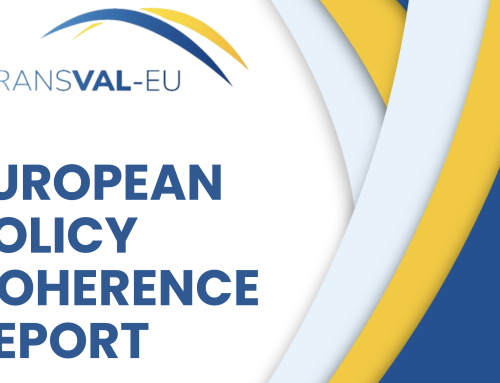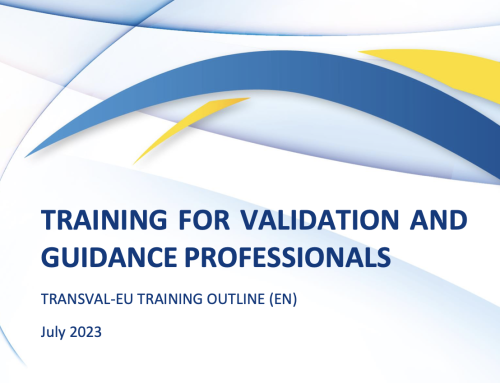VNFIL in French-speaking Belgium
In line with the Europe 2020 strategy, the Lisbon strategy, the European Skills Agenda, the Recommendation of the Council of the European Union of 20 December 2012 on the validation of non-formal and informal learning, the validation of non-formal and informal learning has come a long way in French-speaking Belgium. At its heart: the Consortium de Validation des Compétences (CVDC) that coordinates the complex, yet well-structured mechanism of validation.
CVDC was established through a cooperation agreement between the three francophone governments (the Walloon region, the French Community and the French Community Commission), signed in July 2003, following a right granted by the Federal Government to all workers to undertake a skills audit (un bilan de compétences). A new cooperation agreement was signed in 2019, furtherly defining the mandate and objectives of VNFIL (and those of the CVDC) in French-speaking Belgium.
CVDC is in charge of the validation of competencies (validation des compétences) corresponding to the continuous vocational training sector[1], which also explains the fact that it comprises the five most important training providers operating in the public sector in French-speaking Belgium: FOREM (Service public wallon de l’emploi et la formation, Walloon Employment and Vocational Training Service); Bruxelles Formation (Public sector training agency in the Brussels-Capital region); Enseignement de promotion sociale (Adult Education Provider in the communauté française – i.e. Wallonia and Brussels-Capital Regions); Institut de formation des petites et moyennes entreprises – IFAPME (Training Agency for the Self Employed and SMEs in the Communauté française); Service de formation des petites et moyennes entreprises – SFPME (Training Service for Small and Medium-Sized enterprises in Brussels).
CVDC is in charge of the design of the methods and procedures for VNFIL, together with all the stakeholders (representatives of different sectors, of the continuous vocational training sector, of trading unions etc.), to be used by the network of accredited validation centers. Furthermore, it is CVDC that oversees the accreditation of the validation centers, making sure they comply with well-defined criteria and quality procedures.
CVDC issues « Titres de compétence » (official certifications recognised by the three governments) for 57 professional occupations. A « Titre de compétence » is delivered when a candidate (job seeker or worker) successfully passes a practical test in an accredited validation center. The tests are reconstructed professional situations requiring the candidate to mobilise precise professional competencies that are assessed by experienced professionals of the sector, using a standardised evaluation grid with observable indicators. CVDC’s certifications constitute an official recognition of a candidate’s professional competencies that reinforce his/her employability and/or professional development. In some cases, the certifications also allow the candidate to start a private business in specific regulated sectors.
CVDC’s standards for validation are strictly aligned with those of the French-speaking Professions and Qualifications Service (Service francophone des métiers et des qualifications – SFMQ), that is “in charge of producing common standards based on occupation standards elaborated by social partners (Profils métiers), and corresponding training standards (Profils de formation) elaborated by education and training stakeholders”[2] (Mathou, 2016). SFMQ’s standards (and therefore those of CVDC as well) are aligned with the 8 levels of French-speaking Belgium’s NQF.
The CVDC and Transval-EU
As a partner in the project, CVDC aims at improving the validation process for the benefit of the candidates to VNFIL. In this new project, it intends to continue the work carried out within the RECTEC (led by the GIP FCIP of the Académie de Versailles) and RECTEC+ Erasmus+ projects, that focused on the creation of a Transversal Skills Reference Guide[3].
Moreover, CVDC aims, through TRANSVAL-EU, at raising awareness about transversal competences among advisers and practitioners in their guidance and validation activities. This will also help to strengthen their own competencies.
___________________
[1] There are three other VNFIL systems corresponding to adult education (Enseignement de promotion sociale), universities and Hautes Ecoles in French-speaking Belgium , they refer to the Valorisation des Acquis de l’Expérience (VAE), whereby VNFIL candidates can validate past experience to apply for exemptions when (re)entering training/education.
[2] For each occupation open to VDC, a Commission for Skills Unit Indicators (COREF) is set up, gathering employers, labour representatives and education and training providers. The COREF follows a methodology aimed at outlining the necessary criteria for the verification of the acquisition of skills. (Mathou, 2016).
[3] For further information about RECTEC and RECTEC+ : http://rectec.ac-versailles.fr/productions/.




